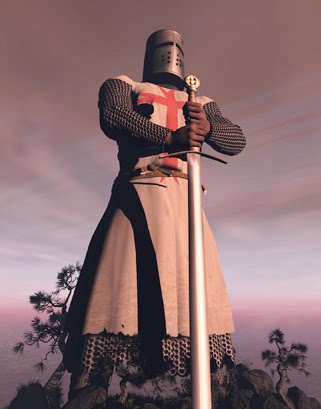
I have recently starting reading "The Rapture Trap" by Dr. Paul Thigpen. Below is one of reviews that I found on Catholic.com and wanted to share with you. This brief review will introduce you to the author and will provide you with a quick overview of the book. As I read through the book I will start posting my thoughts on this book in the coming weeks.
"Over the past fifteen years or so Catholic apologetics has undergone a remarkable resurgence and growth. Books, articles, and tapes about the false beliefs of Jehovah’s Witnesses, Mormons, New Agers, and assorted anti-Catholic groups abound. Yet, as far as I know, Dr. Paul Thigpen’s book The Rapture Trap is the first Catholic book dedicated to refuting the end-times theology known as dispensationalism, better known to the general public as the belief in the so-called "Rapture."
This is surprising, given that the biggest-selling book of the 1970s was Hal Lindsey’s dispensationalist potboiler The Late Great Planet Earth, and the all-time best-selling works of Christian fiction are the Left Behind books, co-authored by Fundamentalists Tim LaHaye and Jerry B. Jenkins. The impact of the dispensationalist movement—with its flawed but intriguing beliefs about the end of the world—on Catholics can hardly be overestimated, making publication of The Rapture Trap a welcome event.
Written for the ordinary reader, The Rapture Trap avoids technical language while emphasizing the big picture of salvation history. Thigpen, a former Evangelical Protestant, understands that the details, while important, must be seen within the grand scheme of God’s work in time and space: "This world has been broken. But the Son of God came to the world, remains present in the world, and will come again to the world so that ‘the world might be saved through Him’ (John 3:17)."A Catholic can easily be drawn into an argument about a passage supposedly supporting the Rapture without being fully aware of how Catholic doctrine differs from dispensationalist teaching on major issues.
Those issues include the Church, the interpretation of Scripture, the meaning of suffering, the nature of the Kingdom, and the purpose of the present age.These are addressed in a series of foundational chapters about the past, present, and future reality of Christ’s salvific work: "The Word Became Flesh," "I Am With You Always," and "Our Blessed Hope." These are followed by an examination of what the Bible teaches about the Second Coming. Here Thigpen discusses the Olivet Discourse, Daniel’s prophecies, the pertinent passages from the Pauline epistles, and the Apocalypse.He demonstrates that "the Second Advent is not a secret or invisible event. On the contrary, in various accounts it is described as unmistakably public, universally visible, glorious, full of splendor."
The next two chapters deal with the origins of the "late great secret Rapture doctrine" and its dangers. Thigpen brings to light the lack of historical basis for the secret Rapture. Not only did the Protestant Reformers never consider the idea, it is rejected by most Protestants today, including Lutherans, Anglicans, and most Calvinists.Although some Church Fathers, such as Justin Martyr and Irenaeus, apparently believed in a future millennium reign on earth—a central belief of dispensationalists—none of the Fathers believed in a secret Rapture.
It was a nineteenth-century ex-Anglican priest, John Nelson Darby, who assembled the dispensational system, one that "sharply divides between two divine plans for history, one for an ‘earthly people’ (the Jews) and one for a ‘heavenly people’ (the Church)." This flowed from Darby’s flawed and pessimistic ecclesiology and his hatred of both the Catholic Church and mainline Protestant denominations.
The Rapture Trap provides solid apologetical points that will serve Catholics well in discussing the secret Rapture and the popular Left Behind books. Thigpen examines the misuse of biblical passages, including key texts such at 1 Thessalonians 4 and Matthew 24. The dispensationalist appeal to the "plain sense" of Scripture is exposed for its lack of consistency and common sense.A solid case is made for the need of the Church’s magisterium to keep subjective and heterodox ideas in check. The author addresses many of LaHaye’s anti-Catholic attacks, exposing him as a Fundamentalist who is sloppy in his scholarship and contemptuous of facts.
The secret Rapture’s promise of escape from suffering is shown to be both appealing and dangerous, and Catholic teaching about suffering is presented as an antidote.The two final chapters (besides a short concluding summary) focus on what the Church does and doesn’t teach about the end of the world and what Catholics should consider when studying private revelations. Although the chapter on the "Dilemma of Private Revelations" doesn’t seem to quite fit with the other material, it is a helpful and balanced treatment of a controversial topic.I do wish that the book contained more quotes from other dispensationalists, and I am surprised that no mention is made of Joachim of Fiore, the twelfth-century biblical scholar whose views influenced dispensationalism and other millenarian movements. Even without these, The Rapture Trap is a well written, balanced, and much needed critique of the "left behind" delusion.
-- Carl E. Olson The Rapture Trap: A Catholic Response to "End Times" Fever By By Paul Thigpen Ascension Press (2001)261pages$11.99 softcover ISBN: 0-9659228-2-0
